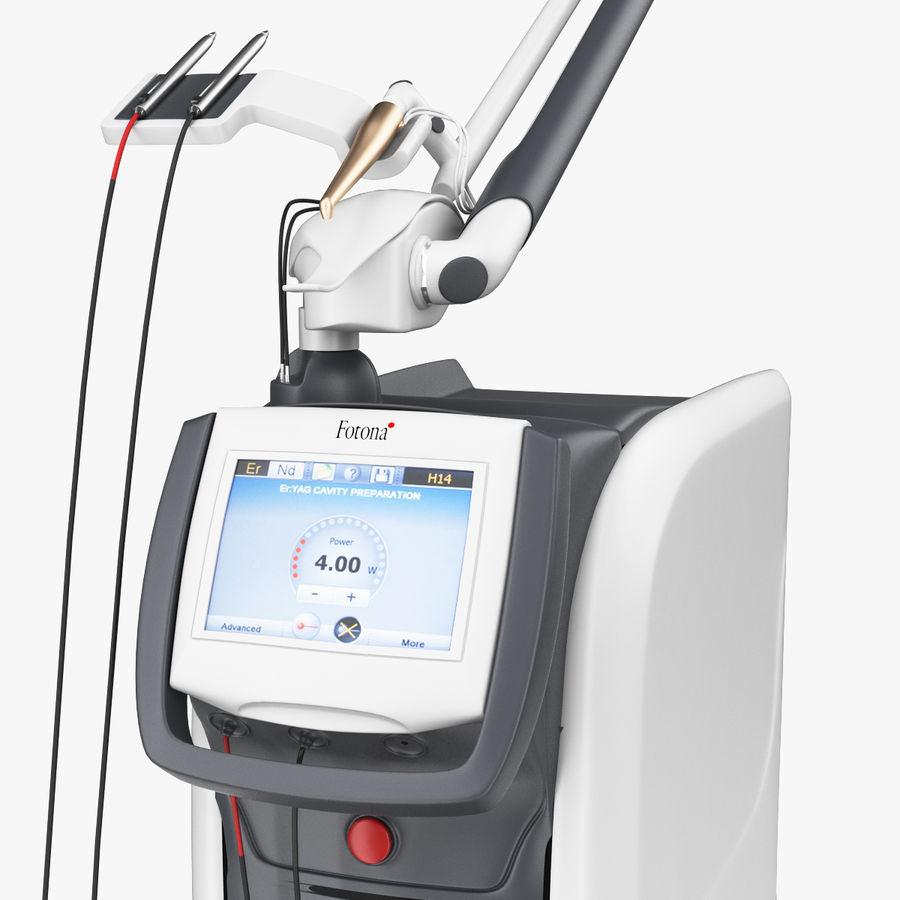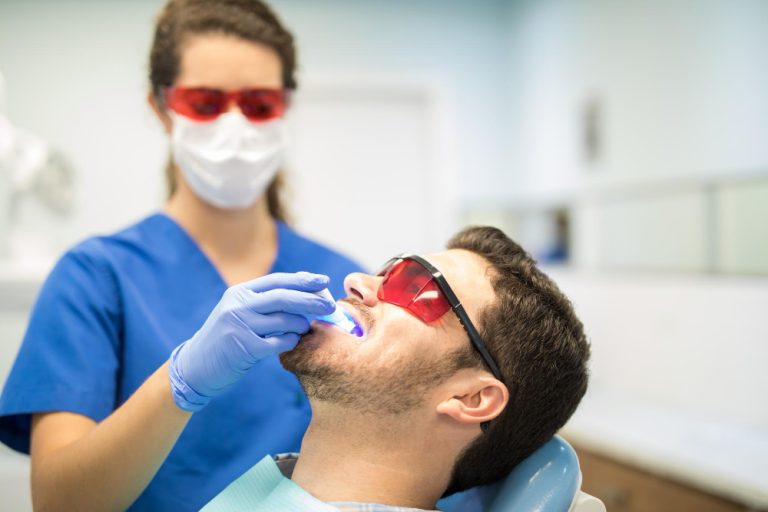
Have you had your teeth professionally cleaned this year? Professional dental cleanings can have a big impact on your overall health in addition to keeping your smile dazzling. Oral hygiene issues have been connected to a number of serious ailments. Bone loss, cardiovascular disease, strokes, malignancies, and a variety of other medical and dental disorders are all linked to this condition. Brushing and flossing at home are important, but to keep your teeth healthy and clean, you should see Dr. Borham on a regular basis and have annual dental cleanings with your dental hygienist.
Everyone is encouraged to get their teeth professionally cleaned. The technique, also known as prophylaxis, involves removing calcified plaque or tartar deposits from the surface of the teeth in order to avoid the dental issues they may bring if left untreated. Even when a person properly and frequently washes or flosses their teeth, these deposits can still easily build up. Regular brushing can help to decrease plaque buildup but cannot totally stop it.
Bacteria-filled soft, sticky film is called plaque. Plaque buildup over time can easily result in cavities and, in the long run, tooth decay. In contrast, tartar is a hard calcium deposit that accumulates over time in a similar way to how limescale does on a kettle or water pipe. Since it typically matches the teeth in color, some people may find it difficult to perceive. But occasionally it has a brown or black hue. The state of the teeth becomes ideal for the growth of bacteria if tartar is not eliminated. Professional dental cleaning leaves the tooth’s surface smooth and clean, making it difficult for bacteria to adhere to it.
Here are six reasons why you should hire a professional cleaner:
- The prevention of cavities is one of the most obvious reasons why people visit the dentist on a regular basis for check-ups and cleanings. After all, getting a cleaning is significantly less expensive than filling a cavity or having a root canal. Cleaning your teeth is also a lot more enjoyable than having dental cavities filled.
- Cleaning your teeth can help you avoid gum disease, which can lead to tooth loss.
- Most stains that dull and discolor your teeth can be removed by your dental hygienist, leaving you with a brighter, whiter smile.
- Many dental plans cover cleanings, and by taking advantage of your policy, you’ll save money on dental costs in the long term.
- There is a substantial association between gum disease and cardiovascular disease. Cleaning your teeth twice a year not only prevents gum disease, but it also lowers your risk of potentially fatal heart attacks and strokes.
- Your dentist can easily notice early indicators of problems including fractured fillings and fractures during a thorough dental cleaning.
Professional dental cleanings allow the dentist or hygienist to compare the current status of your oral health to past appointments. If you are heading in the wrong direction, you will need fast help to get back on course. Regular dental cleanings and check-ups can help prevent and treat persistent foul breath. Call today or schedule an appointment with a skilled dentist to receive the dental treatment you deserve. We offer a wide range of dental services at Mesilla Valley Family Dentistry, from basic preventative care and general dentistry to specialist procedures and total dental reconstruction. Our first priority is patient pleasure, and we strive to provide outstanding, affordable dental care with a personal touch that fosters long-term relationships. Our greatest satisfaction is seeing a patient smile, and we strive to keep their smiles healthy, attractive, and bright. Find a dentist who is experienced and truly cares about his or her patients.
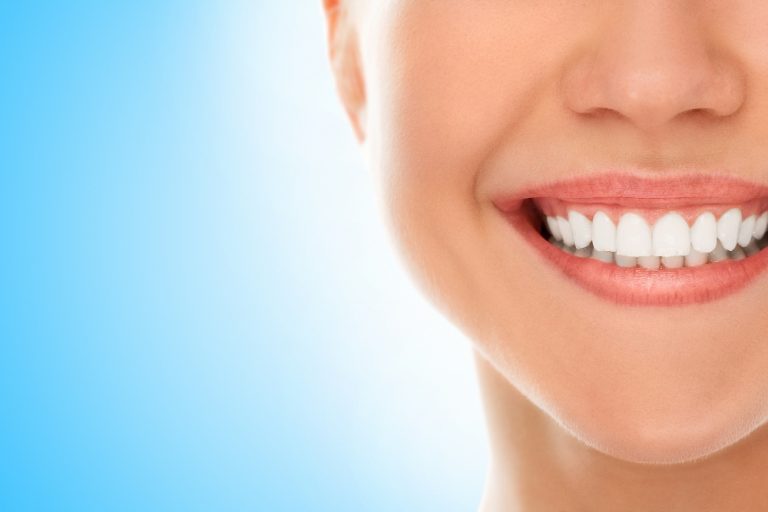
Oral health can have a favorable impact on your mental, physical, and social well-being. It may make it possible for you to eat, speak, and socialize without pain or shame. Proper dental hygiene is a lifelong commitment to maintaining healthy teeth and gums. Eating nutritious foods, brushing, and flossing, and visiting the dentist on a regular basis are all important aspects of maintaining your oral health.
A comprehensive examination, thorough cleaning, and follow-up check-ups will help keep your gums and teeth healthier and your mouth feeling fresh, whether it is your first visit or you have been going to your dentist on a regular basis for many years. It is almost as important to prepare for a dental appointment as it is to show up.
Following the procedures below will guarantee that your first visit to your dentist appointment with Mesilla Valley Family Dentistry runs as smoothly as possible:
- Select a Reputable Dentist.
Your dentist should be able to communicate well with you and manage any nervousness you may be experiencing. Open lines of communication between you and your dentist can boost your confidence and help you form a long-term patient-dentist connection.
- Your Dental History Should be Provided to Your Dentist.
Ascertain that your dentist has access to your dental records. If this is your first appointment, Dr. Borham advises to contact your previous dental clinic to transfer your dental records.
- Make a List of All Medications and Their Dosages for Your Dentist.
It is critical that your Dr. Borham understands what medications you are taking and how much of them you are taking. Bring your prescriptions with you or write down the names of each and deliver them to Mesilla Valley Family Dentistry, as well as the amount and frequency with which you take them.
- Make a list of all your questions and concerns.
Dr. Borham advises writing down all your questions and concerns which is one way to prepare for a dental check-up so you can discuss them with Dr. Borham before your visit. Having your fears and questions addressed can help you feel more at peace and more prepared for what’s to come.
- Caffeine Should be Avoided Before Your Visit.
Being nervous while sitting in the dentist’s chair is generally not a smart idea. Too much caffeine can cause this, making it more difficult for Dr. Borham to effectively work on your teeth.
- Consult with the Dentist.
If you are not just getting a standard check-up, sit down with your dentist to discuss your upcoming dental procedure. Find out whether you will need to follow any pre- or post-operative instructions, and whether you should bring someone with you to your visit.
- Schedule an appointment for the next medical examination
Before you leave the Mesilla Valley Family Dentistry, schedule your next exam or cleaning, and ask for a reminder. This will ensure that you keep up with your routine visits.
We value our relationship with you, so we pledge to make each of your visits as comfortable and enjoyable as possible. We want you to feel appreciated in our clinic, and we welcome both existing and new patients. Contact us today to schedule your appointment.
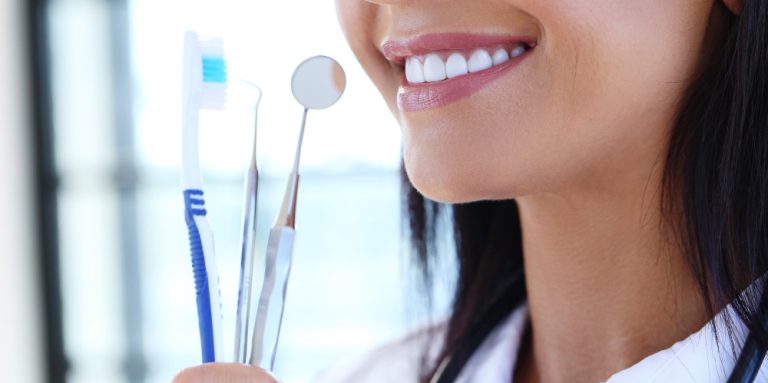
Having a set of pearly whites that are genuinely white is a great confidence booster for most people. Unfortunately, there are a variety of tasty foods and beverages that can stain our teeth over time, and ageing can also contribute to the yellowing of our teeth. As a result, having white teeth can feel like something only a select few can achieve, at least securely. When teeth whitening is done incorrectly, it can damage the enamel, making the teeth more sensitive and susceptible to discoloration.
On the other hand, teeth whitening treatments are becoming more inexpensive than ever with advances in dentistry. This means that everyone can find a way to improve the whiteness of their teeth without going over budget with Mesilla Valley Family Dentistry.
How to get a whiter smile:
- Whitening Strips
Whitening strips sold over the counter are a trendy and economical approach to whiten your teeth. They are widespread, affordable to most people, and simple to do at home, but they do have some significant disadvantages. The strips may not fit your teeth perfectly because they are a mass-produced, one-size-fits-all approach to teeth whitening. This can leave yellow spots on your teeth where the whitening strip does not reach. Because the whitening strips do not fit everyone’s mouth perfectly, the chemicals in the strips come into direct touch with your gums, causing sensitive gums. The healthy bacteria in your mouth may also be harmed by these substances.
You should be cautious about how you use the whitening strips; Discuss with Dr. Borham about which strips are the safest before purchasing them, and carefully follow the instructions. If you use the strips incorrectly or too frequently, you risk damaging your teeth’s enamel. Not only does this cause tooth sensitivity, but it also increases the likelihood of subsequent staining.
- Professional Cleaning
A dental hygienist can assist remove tartar stains and places that cannot be brushed at home, brightening and whitening your teeth while also preventing cavities and gum disease. A professional dental cleaning at Mesilla Valley Family Dentistry can help you whiten your teeth while supporting your overall oral health.
- Prevent Dental Stains from Forming
While your teeth will naturally yellow as you get older, there are several things you can do to help prevent stains. You have to limit staining foods and beverages to a minimum.
Coffee, carbonated beverages, and dark berries are all known to discolor teeth. That does not mean you should avoid them entirely, but you should limit the amount of time they come into touch with your teeth. To avoid direct contact with your teeth, Dr. Borham advises drinking liquids to stain teeth out of a straw if possible. Additionally, brush your teeth 30 minutes after consuming one of these foods or beverages to reduce the color change in your teeth. In addition, avoid smoking and chewing tobacco, as both can stain your teeth.
- Consume Fresh Fruits and Veggies
Fruit and vegetable-rich diets may be beneficial to both your body and your teeth. Crunchy, raw fruits and vegetables can help push plaque away as you eat, though they are no substitute for brushing. Strawberry and pineapple are two fruits that have been touted as tooth whiteners.
- Sugar Consumption Should be Limited
Reduce your sugar intake if you desire whiter teeth. Streptococcus mutans, the principal type of bacterium that produces plaque and gingivitis, thrives in a high-sugar diet. After eating a sugary snack, wash your teeth as soon as possible.
Call our Mesilla Valley Family Dentistry to make an appointment with Dr. Borham who will be able to help you find out more about this topic and improve your oral health.
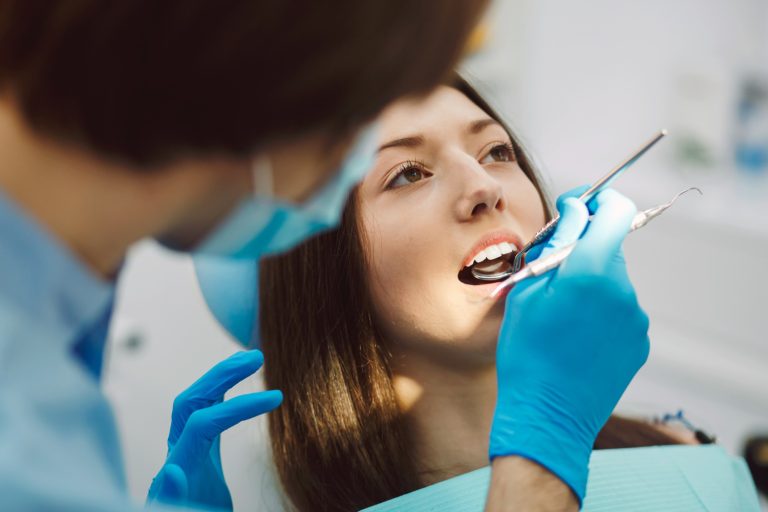
When it comes to kids, we all recognize the significance of proper dental care and oral hygiene in their growth. It is critical to look after your child’s oral health as they begin to acquire teeth, regardless of their age.
We feel it is never too earlier for children to start brushing up on their oral hygiene at our dental clinics Mesilla Valley Family Dentistry. There are numerous advantages to sending your child to the dentist on a regular basis that will continue well into adulthood.
Here are some of the reasons why your children should get frequent dental check-ups with Dr. Borham:
- From a Young Age, Teach Good Oral Health:
We encourage families to visit their dentist so that proper oral health care habits can be instilled from the beginning. They will receive instruction from experts on how to properly brush and floss their teeth in order to maintain healthy teeth and gums. It is not too early to begin learning about the significance of excellent dental hygiene.
A good kids’ dentist can perform a routine procedure such as regular cleaning while also giving a child a favourable view of the dental visit. At Mesilla Valley Family Dentistry, our dentists take a kind and caring approach with your children, ensuring that they are as comfortable as possible while explaining what they are doing and why it is necessary.
- The Significance of Cleaning on a Regular Basis:
Plaque or tartar forms on teeth frequently and removing it with regular cleaning helps bacteria from adhering to the teeth. Most youngsters lack the motor skills necessary to properly clean and floss their teeth, which is where hygienist therapy for children comes in. This is necessary in order to eliminate any material or buildup that may have been overlooked. Because dental decay is one of the most frequent diseases among children, and because it is believed that they will acquire cavities later in life, it is critical to detect and treat cavities in their early stages so that they may be managed as soon as possible.
Cavities that are left untreated can cause tooth decay, periodontitis, and, in the worst-case scenario, the need for tooth extractions and fillings. Depending on your child’s dental needs, you should take him or her to Dr. Borham at least three to four times a year.
- Allows for the Early Detection of oral Health Issues:
Any abnormalities that occur can be halted in their tracks and prevented from worsening if your child’s teeth are checked on a regular basis. In the long term, this saves you money and time. When problems emerge as a result of poor dental hygiene or a poor diet, they can be stopped and cured quickly if caught early enough.
- Ensures that the Teeth and Mouth Develop in a Healthy Manner:
Taking your child to Dr. Borham every twelve months can help preserve and enhance the condition of his or her teeth. Because baby teeth serve as the foundation for adult teeth, it’s simpler for adult teeth to emerge healthier and straighter when they are healthy. If baby teeth are not properly cared for, they may fall out too soon, causing the remaining teeth to shift forward. As a result, permanent teeth are more prone to become crooked and misaligned. Maintaining healthy teeth during the early stages of development also helps to avoid the need for future orthodontic work.
Regular check-ups can also keep you updated about your child’s dental health. Such check-ups allow you to keep an eye on your child for indicators of future orthodontic work, such as crowded, lost, or crooked teeth, which could be extremely beneficial when administered early.
We aim your children to have a lifetime of happy and healthy teeth at Mesilla Valley Family Dentistry. That is why Dentistry has been included. So, make an appointment today to send your youngster back to school with a beautiful smile!
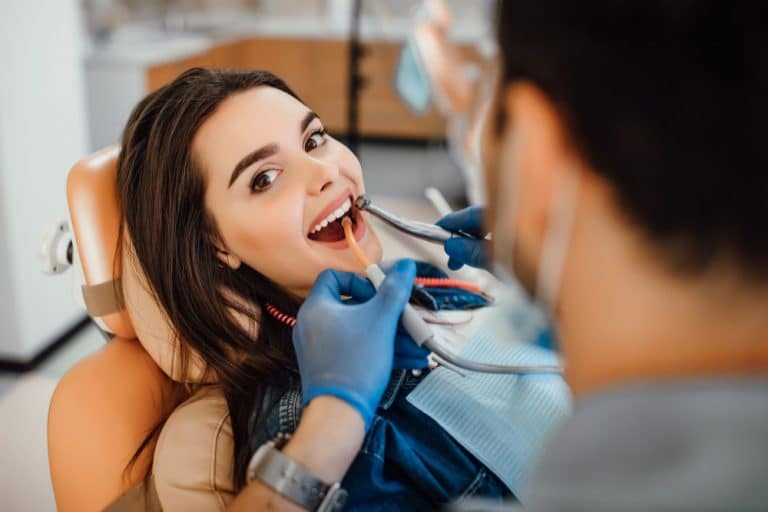
What are your thoughts on dental insurance? Many people consider their dental insurance to be a safety net in case they ever have a dental emergency, while others rarely think about it. Because you pay for your dental insurance monthly, it makes more sense to consider how you may get the most out of your coverage. Dr. Borham in Las Cruces provides five simple and practical recommendations to help you achieve just that in this blog post.
Get 5 tips from Mesilla Valley Family Dentistry that will help you take full advantage of your coverage in 2022!
- Preventive Care Should Not be Overlooked, and Visits Should be Scheduled Early in the Year.
Dr. Borham advises, most people should see their dentist at least twice a year for preventive care. Most dental insurance policies cover check-ups and cleanings in full. These regular dental appointments not only keep your mouth clean and fresh, but they also help your dentist to detect oral health issues before they become serious.
- Take Action to Improve Your Overall Health.
It is not only about your oral health when it comes to making the most of your dental insurance. It can also improve your overall well-being and quality of life. You can help to prevent the development of gum disease by using your dental coverage to get the care you need. Gum disease is associated to the following health conditions:
- Stroke.
- Diabetes.
- Oral cancer is a disease that affects the mouth.
- Hypertension.
- Heart disease is a serious condition.
- Pancreatic cancer.
- Find Out When Your Policy Will Expire.
The majority of PPO insurance policies are based on a calendar year. You were issued a yearly maximum at the start of 2022, a number that indicates the most your insurance provider will pay out for authorized services. Any unused amount of the annual limit expires at the end of the year. It will not be renewed in 2023. As a result, if you know you need a procedure, it is a good idea to arrange it before your 2022 coverage expire.
- Do Not Forget About Your FSA!
In addition to traditional dental insurance, some people have a flexible spending account (FSA). You can set away tax-free money in an FSA for dental bills. Because most FSAs are due to end on December 31, you still have a few months to use the monies in your account.
Are you making the most of your dental benefits? The advice in this article can help you save money while also improving your oral health.
- Practice Excellent Dental Hygiene at Home.
The typical dental insurance plan devotes the most benefits (generally 100 percent) to preventative care and up to 80 percent to basic care (fillings, root canals and treatment for gum disease). The maximum coverage for major treatments including as crowns, inlays, dentures, and so on is normally 50%.
The better you take care of your teeth at home, the less likely you are to need more complex operations that will cost you more money. Thus, Dr. Borham advises you to start with the basics: brush and floss your teeth at least twice a day and monitor your sugar intake.
All your efforts can be doubled by maintaining regular visits to the Mesilla Valley Family Dentistry. This will allow you to protect your teeth, gums and wallet!
Make an appointment with us today for self-confidence and a smile you will be proud to flaunt! Simply contact us at the Mesilla Valley Family Dentistry.
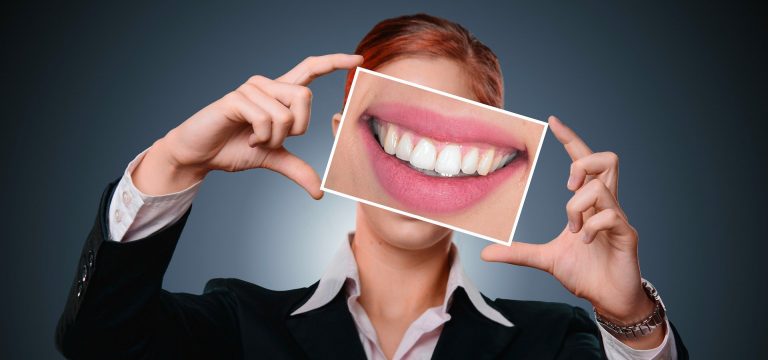
Smiling is the foundation of joy. A genuine smile brightens your eyes, tightens your cheeks, and radiates across your face. When it comes to self-confidence, communication, and relationships, your smile is one of the most significant factors. Why? We catch up on nonverbal communication intuitively as humans. In reality, nonverbal communication accounts for 60 to 90 percent of your daily interactions with people.
Smiling has been found to release endorphins, enhance immunity, and improve the mood of others around you. Most importantly, having a healthy smile boosts your self-esteem. Do you raise your hand to cover your teeth when you feel these muscles moving? Or are you attempting to disguise your teeth by controlling your cheek muscles? If that’s the case, you are missing out on the benefits of smiling, which is why Dr. Borham recommends seeing a dentist to get a confident grin.
Learn with Dr. Borham how a healthy smile can help you feel more confident and how Mesilla Valley Family Dentistry can help you have a great smile:
- The first thing people notice about you is your smile:
When you can grin with sincerity, it creates the idea that you are trustworthy, enjoyable to be around, and friendly! Having good teeth allows you to highlight your best feature which is your personality.
- Meaningful Conversations Follow Fresh Breath:
Relationships are strengthened when people communicate effectively. Fresh breath allows conversations to endure longer, whether at work, play, or at home. A healthy dental routine, as well as frequent dental cleanings and examinations, are the first steps toward fresh breath.
- Your handshake’s best friend is a smile:
Have you practiced your professional handshake to make a strong first impression in interviews and at work? Did you also practice greeting people with a smile? You transmit the message that you are fearless, confident, and upbeat when you pair a confident handshake with a self-assured smile.
- 4. Having healthy teeth shows that you care about yourself and have confidence
The bright smile around you says that you care about yourself and have confidence. This indicates to others that you understand that you are worthy of attention.
- Make a big smile for the camera!
It is nearly difficult to avoid being photographed, and you should not try. With a bright smile, you may find yourself planning more memorable vacations and adventures, as well as capturing more photos. You will be delighted to show your photos to your children, grandchildren, and friends.
So, is your smile promoting positive connections, communication, and self-assurance? Do not allow your smile to get the best of you. You have earned the right to take advantage of whatever life has to offer with self-assurance and pride. Mesilla Valley Family Dentistry can assist you in developing a healthy dental regimen and repairing any damage that may be preventing you from smiling freely.
Make an appointment with us today for self-confidence and a smile you will be proud to flaunt! Simply contact us at the Mesilla Valley Family Dentistry.
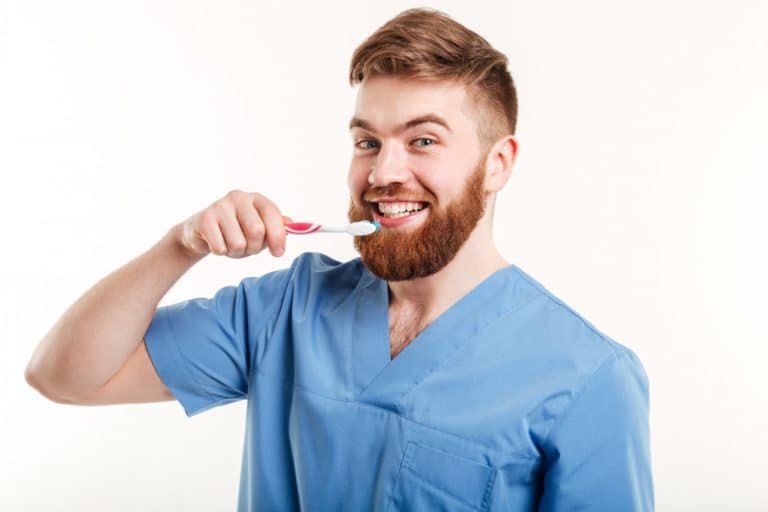
Have you seen a bit of blood in your sink when you brush your teeth recently? That bleeding can be one of the first warning signs that you have got gum disease. Most gum diseases can be reduced or eliminated by practicing more consistent and comprehensive oral hygiene and having professional dental cleanings. After a dentist or dental hygienist at Mesilla Valley Family Dentistry removes the plaque and tartar, the patient can usually avoid gingivitis and gum disease by brushing and flossing after each meal. A patient can use a prescription mouth rinse that targets the oral germs that cause gum disease under the supervision of Mesilla Valley Family Dentistry.
Healthy gums are vital for strong teeth, and the best way to make sure gums stay healthy is with a good oral health routine. Professional dental cleanings help remove built-up plaque that is not removable using conventional brushing and flossing. Often, dentists are also capable of identifying potential problems that patients are not yet able to see or feel. When you maintain regular preventative dental appointments, you can stave off decay and gum disease, as well as identify the beginnings of oral health problems before they become severe. Dr. Borham explains the best way to treat gum disease:
Oral Hygiene:
It is important to maintain oral hygiene to avoid gum disease, to keep it clean Dr. Borham recommends the following:
- Borham recommends brushing your teeth twice before bedtime and once more a day by using toothpaste with the proper amount of fluoride, a natural mineral that aids in tooth decay prevention.
- Brushing your teeth after flossing or using interdental brushes on a regular basis (preferably daily).
- Visit your dentist and dental hygienist on a regular basis.
- Do not smoke.
Mouthwash:
Mouthwashes can’t get rid of plaque that’s already there, and this can only be accomplished by brushing and flossing on a regular basis. Dr. Borham will be able to advise you on the best mouthwash to use and how to use it properly. If mouthwash helps control plaque build-up, the sticky substance that formed when bacteria collect on the surface of your teeth, your dentist may recommend it. Pharmacies sell antiseptic mouthwashes containing chlorhexidine or hexetidine over the counter but if you use chlorhexidine mouthwash on a daily basis, it might colour your teeth brown. Hence, Chlorhexidine mouthwash should not be used for more than four weeks.
Saltwater Treatment for Gingivitis:
Rinsing with salt water can help repair gingivitis-inflamed gums. Salt is a natural disinfectant that aids in the healing process of your body.
Salt water can also be used to:
- Gums that are irritated should be soothed.
- Assist in the reduction of pain.
- Bacteria are reduced.
- Food particles should be removed.
- Get rid of foul breath.
To find out how to treat Gum Disease, simply contact us and get more details by making an appointment at the Mesilla Valley Family Dentistry.

The Best Dentist in Las Cruces, New Mexico! Please Click here to check it out

The Best Hygienist in Las Cruces, New Mexico! Please Click here to check it out
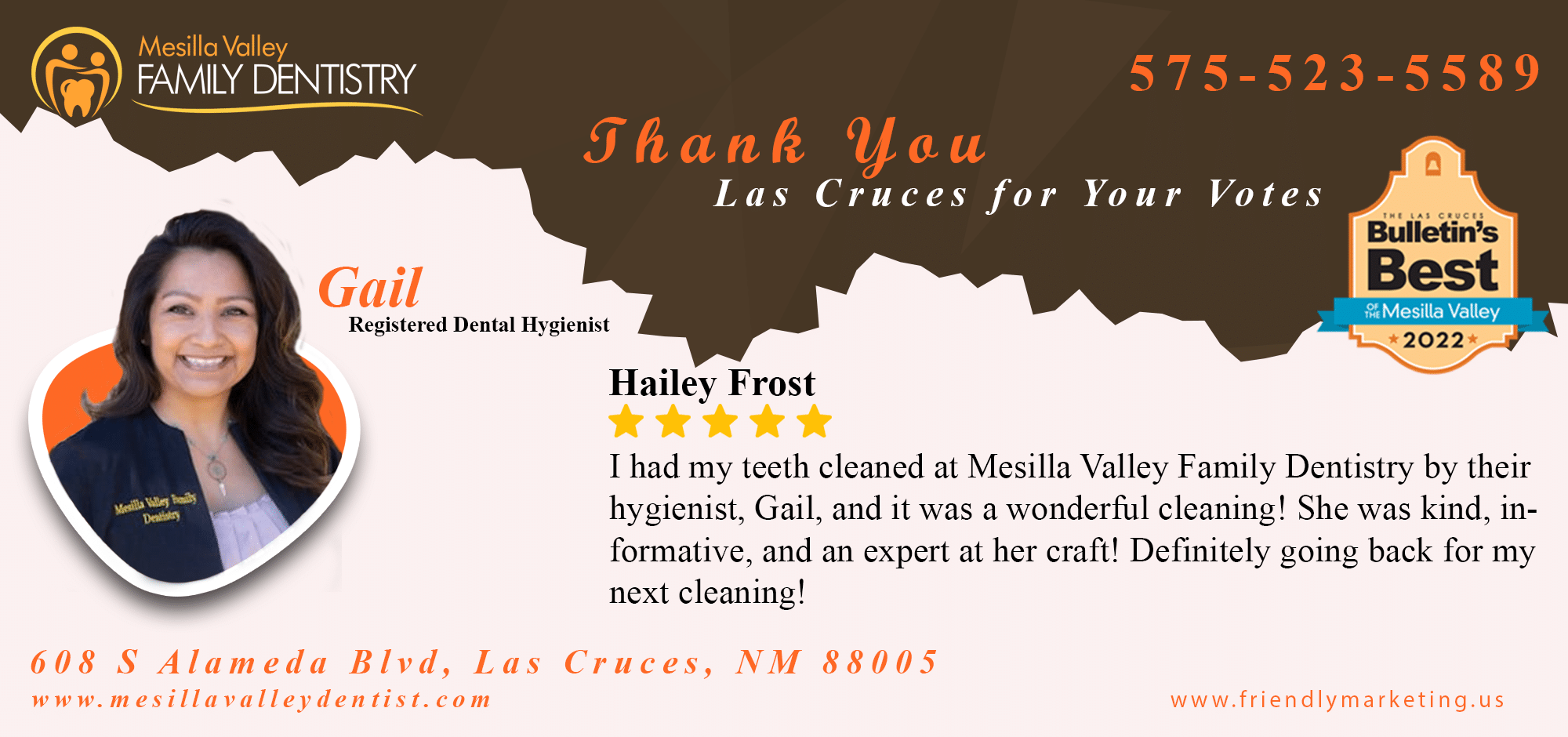
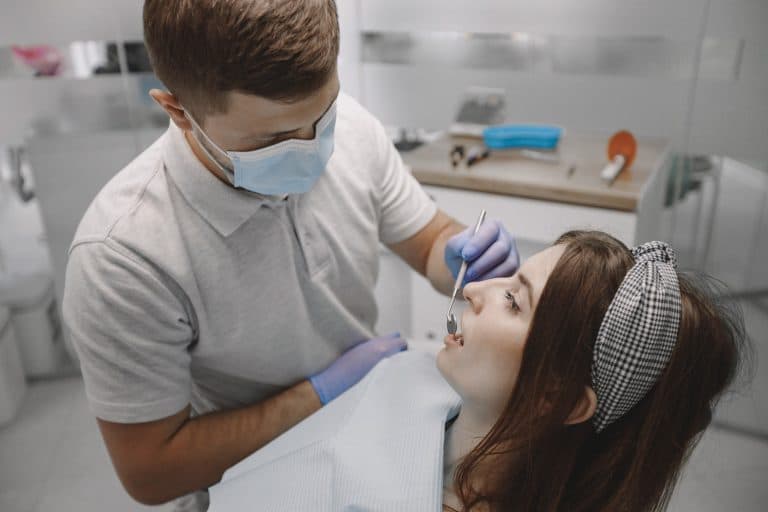
Our patients often ask Dr. Borham if they are old for Invisalign. As Dr. Borham advises his patients that as long as their teeth and gums are healthy, he can help them get an incredible smile at any age. Also, patients may be embarrassed to get braces installed, or maybe they want but cannot afford the costs, do not worry, the solution is always there, most adults are embarrassed to get braces, or they cannot afford the costs, and this is where Invisalign comes in. Invisalign is a clear, invisible compound that a person can take off and eat and will no longer embarrass you.
If you are an adult who needs orthodontics and wants a straighter and more beautiful smile, then Invisalign is the leading provider of clear braces and guarantees stunning results.
Mesilla Valley Family Dentistry shares the reasons why Invisalign is such a great option for adult patients:
- Completely invisible and does not affect speech and pronunciation:
No one will know you are wearing Invisalign unless you want them to know. Adults who wear braces are more likely to be shy, especially those who work professional or white-collar jobs. When Invisalign is worn, however, it is undetectable. Because it is invisible and no one can tell you are using Invisalign, it has no effect on your speech or appearance, allowing you to carefully adjust your smile.
- Comparing to braces, Invisalign has a much shorter treatment time:
You do not have to wear Invisalign indefinitely. You usually will only have to wear Invisalign for about 12 months, which is less than traditional treatment via wearing braces. Placing Invisalign and using it now at an early age will help you make your teeth straighter and more comfortable. Invisalign for adults is considered successful and effective according to advances in diagnosis, treatment, and procedures.
- Invisalign is low maintenance:
Even If you have a busy schedule, it is easy to make time for the treatment you need with Invisalign. You do not have to spend an hour every few weeks in the dentist’s office to adjust your Invisalign and this will save you time and money.
- Invisalign is more affordable than you would think:
Dr. Borham believes everyone deserves to get a smile they love within their budget limit. You can call our office to get a quote. Dr. Borham recommends Invisalign if you wish to straighten your teeth without braces. The therapy consists of a series of clear, removable plastic aligners that are custom-made for you according to Dr. Borham’s instructions. Your new smile emerges as you progress up the chain. The advantages of Invisalign are that it is nearly invisible, and the orthotics are removable, so there are no limits on what you can eat, and your mouth hygiene regimen remains the same and it is convenient. You will not need to schedule any emergency repairs because straighteners do not have brackets or wires. You will be able to go about quickly.
- The Benefits of Adult Orthodontics are Significant.
-
- Improving your facial symmetry and appearance
- Increasing self-esteem and confidence, which has a positive impact on all aspects of your life
- Enamel protection against early deterioration
- You’ll like brushing and flossing since straight teeth are easy to clean.
- Gum disease, for example, can cause bone loss and possibly tooth loss.
Invisalign is the preferred method of smile correction for most adults. To find out if Invisalign is right for you, simply contact us and get more details by making an appointment at the Mesilla Valley Family Dentistry.
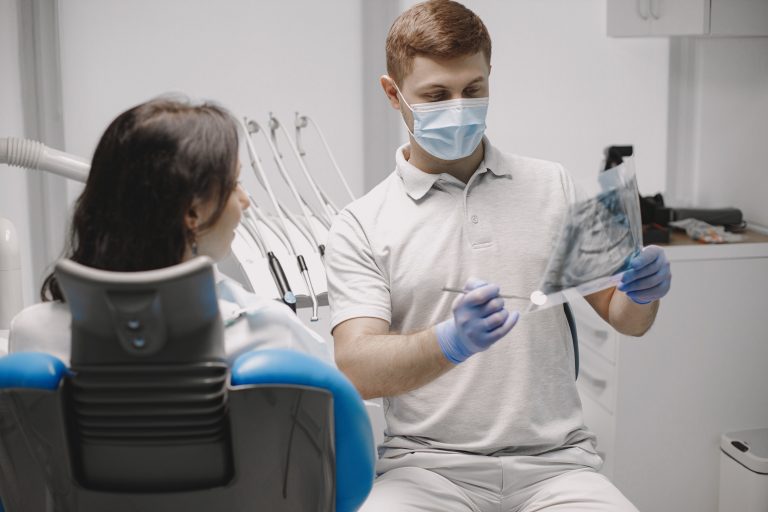
From a very early age, your dentist will advise you to stay away from unhealthy foods and always take care of brushing and flossing your teeth, but unfortunately with this attention, you may have a cavity in your teeth at some point in your life. Tooth decay, which is often referred to as cavities, can occur at any time. But do not worry, here you need to take care and visit Dr. Borham in Las Cruces, New Mexico without delay.
Dr. Borham explains the best ways to keep your teeth in perfect shape.
Here are eight tips that will help to prevent cavities:
- Brush Your Teeth Regularly
Dr. Borham advises to combat cavities to clean the teeth at least twice a day for at least two minutes each time to avoid the occurrence of cavities. When brushing your teeth, the toothbrush should be at a 45-degree angle to clean the teeth well from all sides, front, back, top and bottom. In addition, the toothbrush should come into contact with both the tooth as well as the gums. It is recommended to use fluoride toothpaste.
- Floss or Clean Between Your Teeth Daily
When eating, some food residues may get stuck between the teeth, and even if you use a toothbrush, it may not remove these residues. If they are not removed, this may lead to tooth decay, unless dental floss is used to clean the teeth. A common problem that hygienists find is that their patients are not flossing their teeth. String floss, flossing brushes, and water flossing devices are different types of floss options available.
- Visit Your Dentist and Dental Hygienist:
Cavities can only be discovered by a dentist or x-ray. Therefore, it is important to visit your dentist for regular routine check-ups to check your teeth, maintain oral hygiene and prevent cavities. You can consult your doctor and take the doctor’s advice regarding dental cleaning.
- Consider Fluoride Treatments
Dr. Borham recommends periodic fluoride treatments, especially if you aren’t getting enough fluoride through fluoridated drinking water and other sources. Dr. Borham may recommend custom trays that fit over your teeth for the application of prescription fluoride if your risk of tooth decay is very high.
- Consider Sealants
Dental sealants are clear coatings applied to the surfaces of a child’s molars to prevent the development of tooth decay. They work by preventing food and plaque from resting in the grooves and crevices of molars – an area especially susceptible to cavities. According to the National Institute of Dental and Craniofacial Research, nearly 1 in 3 U.S. children ages 6 to 12 currently have sealants on their teeth.
- Eat Healthy Food and Avoid Sugary Drinks
Eating healthy meals helps prevent plaque formation on your teeth, so Dr. Borham advises to stay away from sugary drinks and food that contain sugar, eat healthy food, and drink water instead.
- Chew Sugar-Free Gum
Sugar-free gum stimulates the flow of saliva, which protects your teeth from cavities. Dr. Borham says: When you eat sugar-free gum, it helps produce saliva and protects your teeth from cavities, thus reducing plaque acid.
- Use Mouthwash but Do Not Just Rely on It
Use a mouthwash that contains antimicrobials that reduce plaque, such as Listerine or Crest Pro-Health. Dr. Borham recommends using mouthwash after brushing and flossing, but you can’t rely on it alone so make sure you remove food residue.
Dr. Borham always advises you to consult your dentist and perform a routine dental examination to ensure that no plaque builds up on your teeth and to prevent them from decaying.










